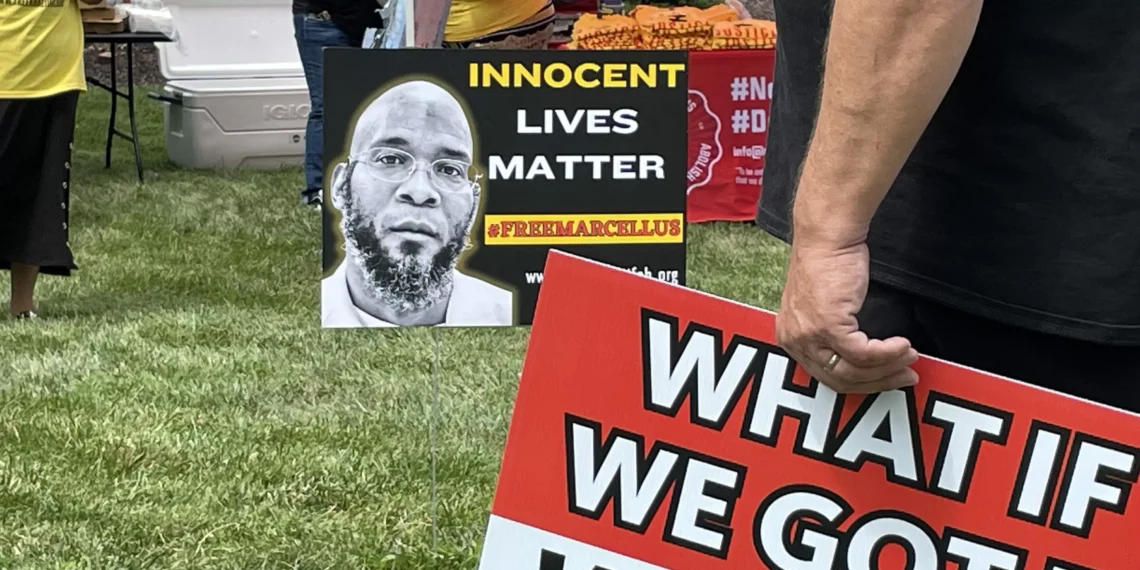The case of Marcellus Williams has once again brought to light the deep flaws in our justice system. Williams, a Missouri death row inmate, was convicted of murder over two decades ago and has been fighting for his innocence ever since. But despite new DNA evidence that could potentially exonerate him, the prosecutor’s actions from two decades ago have doomed his chance at freedom. And now, the Attorney General is refusing to let Williams’s life be spared.
It was in 1998 when Williams was convicted of the brutal murder of a former St. Louis Post-Dispatch reporter, Felicia Gayle. The prosecution had convinced the jury that Williams had stabbed Gayle over 40 times during a robbery attempt. However, there was no physical evidence linking Williams to the crime. The only evidence that was presented was the testimony of two convicted felons, who claimed that Williams had confessed to them while in prison.
For years, Williams maintained his innocence, but his pleas fell on deaf ears. It wasn’t until 2015 that new DNA evidence emerged, giving Williams hope for a chance at exoneration. But unfortunately, that hope was short-lived.
The DNA evidence was found on the murder weapon, a knife, and it did not match Williams’s DNA. This was a significant breakthrough in the case, as it completely disproved the prosecution’s theory that Williams had committed the crime. However, the evidence was contaminated due to the prosecutor’s actions from two decades ago.
During the original trial, the prosecutor had allowed the knife to be handled by several people, including himself, without following proper protocol. This resulted in the DNA evidence being tainted, making it inadmissible in court. This was a clear violation of Williams’s rights and a grave injustice.
Despite this, the Attorney General has refused to acknowledge the contamination of the DNA evidence and continues to push for Williams’s execution. This is a blatant disregard for justice and a failure of our justice system. The Attorney General’s actions show a lack of compassion and a lack of willingness to correct the wrongs of the past.
Williams’s case is not an isolated incident. It is a reflection of the systemic issues within our justice system. The flaws in our system, from biased investigations to wrongful convictions, continue to put innocent lives at risk. And for those on death row, the consequences are irreversible.
The death penalty is a controversial topic, and it is a debate that has been ongoing for years. But cases like Williams’s raise questions about the fairness and reliability of our justice system. How many innocent lives have been lost due to wrongful convictions? How many more will suffer the same fate if we continue to turn a blind eye to these issues?
It is time for us to demand a change. We cannot allow innocent lives to be taken in the name of justice. We must hold our justice system accountable and demand that it operates with integrity and fairness.
In the case of Marcellus Williams, the evidence is clear – he is an innocent man. Yet, the prosecutor’s actions from two decades ago continue to haunt him, and the Attorney General’s refusal to acknowledge the contamination of the DNA evidence is a grave injustice. Williams’s best chance at getting off death row was the DNA evidence, but the prosecutor’s actions have taken that away from him.
We must not stand idly by while an innocent man’s life hangs in the balance. It is our moral duty to speak out against such injustices and demand that Williams be granted a fair trial. We cannot let the mistakes of the past dictate an innocent man’s future.
In conclusion, the case of Marcellus Williams is a stark reminder of the flaws in our justice system and the dire consequences it can have. We must take a stand and demand change to prevent innocent lives from being lost. It’s time for the Attorney General to do the right thing and let Williams’s life be spared. Justice must prevail, and it starts with correcting the wrongs of the past.






